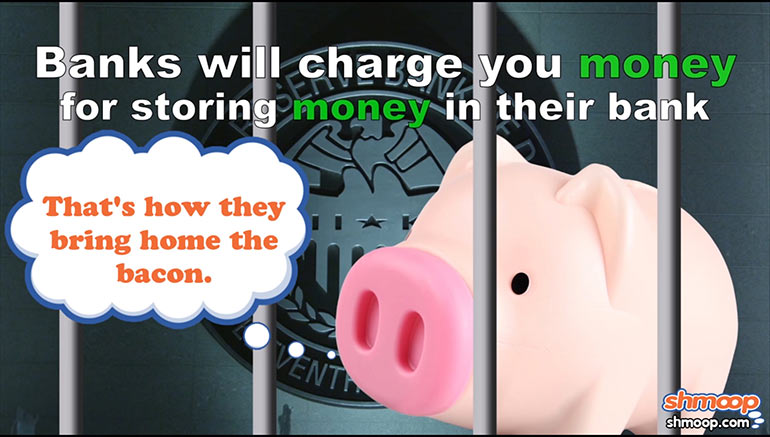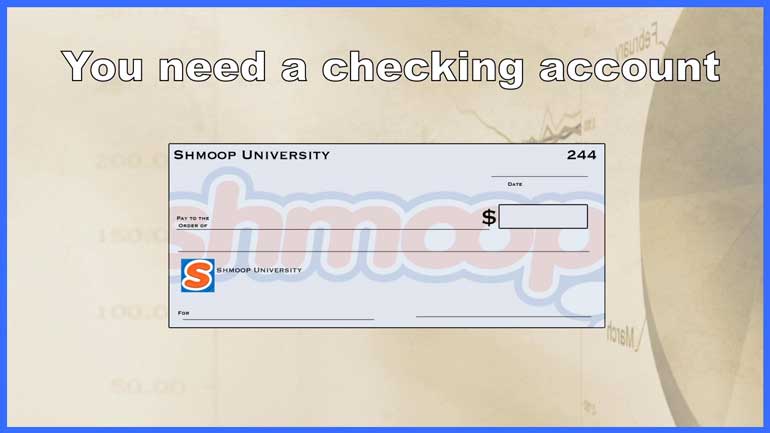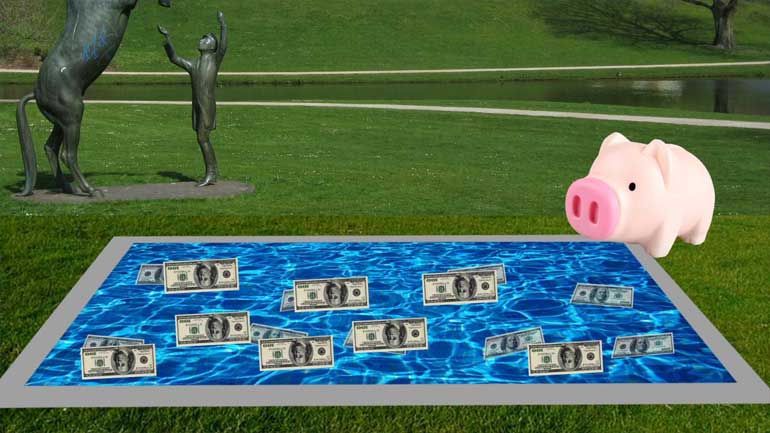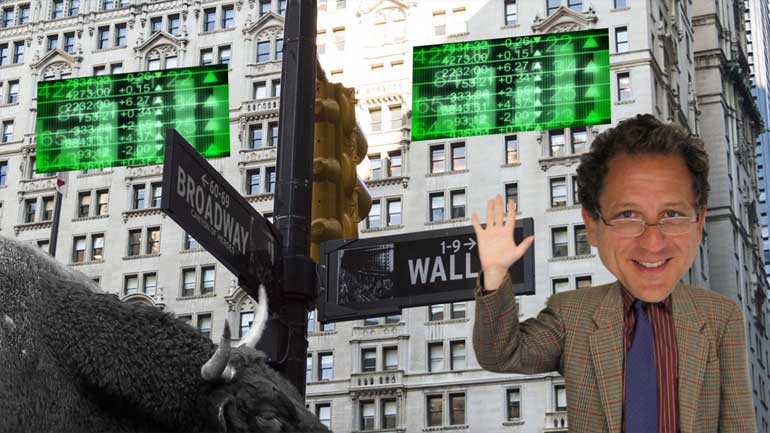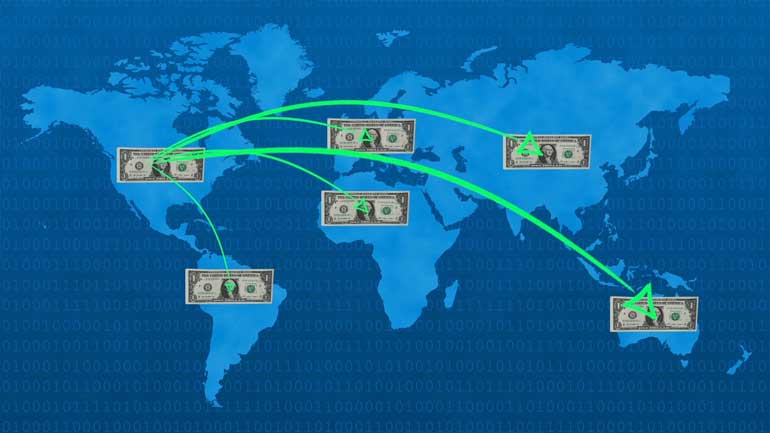ShmoopTube
Where Monty Python meets your 10th grade teacher.
Search Thousands of Shmoop Videos
Personal Finance Videos 520 videos
Finance: How do you assess the cost of equity? 11 Views
Share It!
Description:
The cost of equity is essentially how much the total returns, i.e. capital appreciation plus any dividends, are needed to keep shareholders from selling their stock. The old school way of calculating the cost of equity was to divide the stock price into the annual dividend per share. Of course, a majority of stocks presently do not pay dividends. Some companies calculate the cost of equity by factoring in a stock’s beta, or volatility and risk premium (added return needed to justify when compared to low risk investments) and adding it to its risk-free rate (the compared low risk investment cost).
- Social Studies / Finance
- Finance / Financial Responsibility
- College and Career / Personal Finance
- Life Skills / Personal Finance
- Finance / Finance Definitions
- Life Skills / Finance Definitions
- Finance / Personal Finance
- Courses / Finance Concepts
- Subjects / Finance and Economics
- Finance and Economics / Terms and Concepts
- Terms and Concepts / Accounting
- Terms and Concepts / Banking
- Terms and Concepts / Careers
- Terms and Concepts / Company Management
- Terms and Concepts / Company Valuation
- Terms and Concepts / Financial Theory
- Terms and Concepts / Tax
- Terms and Concepts / Trusts and Estates
Transcript
- 00:00
finance a la shmoop how do you assess the cost of equity
- 00:07
all right so people remember that's equity that's your stock that's the [Man driving a car]
- 00:11
ownership of the company trying to figure out how you assess the cost of it
- 00:15
when you do stuff with it okay so your specific motors your like [Specific motors store]
- 00:19
General Motors but your products way less vague with your stock at $20 a
Full Transcript
- 00:25
share and fifty million shares outstanding Wall Street is telling you
- 00:29
when they're paying 20 bucks a share for your stock that specific motors is worth
- 00:32
a cool billion dollars got it 20 times 50 there you want to buy your dreaded
- 00:38
hated competitor Alfalfa Romeo for two hundred million dollars yep [Plane carrying Alfalfa Romeo banner]
- 00:43
the one started by the little rascal that one so you've gotten your board to
- 00:47
agree to let you make this transaction and you've gotten Alfalfa Romeo to agree [Specific Motors and Alfalfa Romeo board in a meeting]
- 00:53
to it as well the only question now is how you pay for this transaction that is
- 00:58
how you pay the two hundred million dollars is it in cash or is it in stock
- 01:03
all right well you could borrow the money and if you do the rate of interest
- 01:06
you'll pay is seven percent with terms already set so that you have to pay back
- 01:10
one tenth of the loan each year for ten years until it's all paid off got it so
- 01:16
two hundred million dollars that is 20 million a year and you can handle the
- 01:19
interest it would be 14 million bucks interest in year one but you would also
- 01:23
owe 20 million in principle pay downs at 34 million in year one and well frankly [Interest payments for year 1]
- 01:28
that's where you get nervous that's a lot of cash out of your pocket here...
- 01:32
If things don't go perfectly smoothly in your profit margins of the combined
- 01:36
company specific romeo' are less than you'd plan well then you could risk
- 01:41
putting the company in financial peril even bankruptcy because you know that if [Car driving by and stock value stamped with bankruptcy]
- 01:46
you don't pay back debt according to the deals terms, well then at least in theory
- 01:50
the debt holders could knock on your door one day and take ownership of your [Chains engulf Specific Motors]
- 01:54
company yeah company suicide, career suicide, the
- 01:58
financial end of the world as you know it so you look at paying the 200 mil in
- 02:02
equity instead of debt and you're wondering how to assess that cost got it
- 02:08
so you have a billion dollars you're going to give a fifth of that or 200
- 02:11
million dollars to the shareholders of Alfalfa Romeo in return for their excellent
- 02:16
cars all right well on your own this year you'll have three hundred million [Revenues for Specific Motors]
- 02:19
dollars in revenues to specific motors to deliver 40 million dollars in
- 02:23
earnings you trade at 25 times that 40 million of earnings billion dollars
- 02:29
remember you have 50 million shares outstanding trading at 20 bucks a share
- 02:33
do the math on both sides and you'll get a billion dollars either way see we do
- 02:37
it here for you at no extra charge at shmoop you can see it right there on the [Man points to Shmoop calculations]
- 02:40
screen....
- 02:42
well your business doesn't have a lot of research and development not big capital
- 02:46
expenditures so most if not all of your earnings is cash earnings that is of the
- 02:52
40 million dollars in earnings this year well close to a hundred percent of it is
- 02:56
cash we'll just call it that for this problem all right well if all you were
- 03:00
was a dividend producing machine well then this year you would be showing a [Machine producing dividends]
- 03:05
"free cash flow yield" of four percent or 40 million dollars in
- 03:12
cash generated by the billion-dollar market cap company that you have going
- 03:17
on there got it that's 40 million over the billion dollar valuation it's like a
- 03:21
4% cash yield for investors meaning if you paid $20 for a share of [20 dollars transfers to a share of stock]
- 03:25
stock you got about 80 cents in cash production from it so that's 80 cents
- 03:29
over 20 bucks the combo gets you a 4% cash yield so yeah that's how you assess
- 03:35
the cost of equity, you're paying for things in all stock with about 4% kind
- 03:41
of yield money so if you're paying a fifth of the company to buy Alfalfa
- 03:46
Romeo well you're gonna dilute that cash yield down and then you just have to do [Maths book opens]
- 03:50
the math whether Alfalfa Romeo generates enough cash to make the difference to
- 03:55
you does that make sense Otay! [Man waves]
Related Videos
GED Social Studies 1.1 Civics and Government
What is bankruptcy? Deadbeats who can't pay their bills declare bankruptcy. Either they borrowed too much money, or the business fell apart. They t...
What's a dividend? At will, the board of directors can pay a dividend on common stock. Usually, that payout is some percentage less than 100 of ear...
How are risk and reward related? Take more risk, expect more reward. A lottery ticket might be worth a billion dollars, but if the odds are one in...
